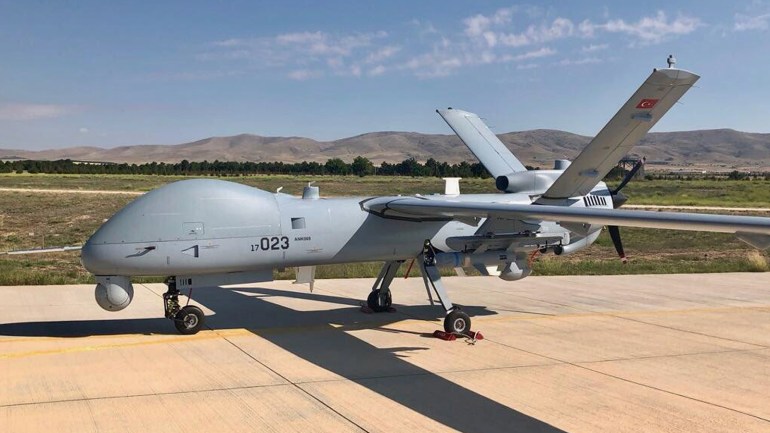American writer Ishan Tharoor described the Libyan war as becoming a global stampede for power, influence and prestige, saying that if Afghanistan was "the cemetery of empires", then Libya is "a crucible for the coming regional powers."
In an article for The Washington Post , Tharoor said the intractable civil war that has divided the oil-rich country in North Africa is indeed a multifaceted chess match, between a variety of external actors, from Turkey to the United Arab Emirates, France, Egypt and Russia.
On the ground, says Tharoor, the battle involves thousands of Syrian militiamen, Sudanese mercenaries and Russian contractors. In the air, these countries are deploying an increasing number of drones, combat aircraft and missiles.
An unprecedented level of intervention
Earlier this month, UN Secretary-General Antonio Guterres warned that foreign intervention "has reached unprecedented levels".
The writer believes that Turkey appears to be the biggest victor this summer, by entering Libya to save the government recognized by the United Nations, as the National Accord government helped to take strong control of western Libya, and is moving to control the strategic "oil crescent" of the country.
Turkey regains its importance in the region
Tharoor goes on to say, "If the Al-Wefaq government can do this, it will strengthen its strong position now, and Ankara will be able to reap geopolitical gains." Ozlem Kayguzuz, associate professor of international relations at Ankara University, was quoted as telling the Financial Times that Turkish President Recep Tayyip Erdogan and some of his allies believe that Turkey is regaining its importance in the eyes of its western allies, as the more it plays a firm role, the greater its value, and the West has failed to ignore its role in the region .
However, Tharoor added, "Much remains unresolved, as it appears that the Egyptian dictator, General Abdel Fattah al-Sisi, is eager to enter the battle against Turkey's Libyan allies. There is an element of personal and ideological clash between him and Erdogan."
He attributed to the Turkish scholar at the Washington Institute for Near East Policy a description of the relationship between Sisi and Erdogan; They are "each other's enemies; a secular general imprisoned Islamist politicians, and an Islamist politician imprisoned secular generals."
In addition, Tharoor says, there is a wider game, which is the eastern Mediterranean conflict between Turkey and Libya on the one hand, and Greece, Israel, Egypt, Cyprus and some other European countries on the other hand, on maritime rights.
The "Syrianization" of Libya
The writer supports his argument that the Libyan war has become a melting pot of regional states by declaring Admiral Heidi Berg, the senior intelligence officer in the African-American Command "Africom" in one of the interviews that the forces operating in Libya in the past had a seat at the negotiating table, and had an undue influence On the result, but it has now become almost the main axis, which sheds light on what Russia wants, which is international status, and to be reckoned at the negotiating table.
It describes the European call made by Germany, Italy and France at the end of last week to stop all foreign parties interfering in Libya and to respect the arms embargo imposed by the United Nations Security Council; It is a hollow invitation because France is one of the main players interfering in Libya.
As for the United States, it chose to occupy the back seat, as Tharoor points out, attributing to a senior US State Department official - who asked not to be named - to say that the Libyan problem is a European problem, describing it - in express terms - as very complicated, that it is "surna". (From Syria) to Libya.

